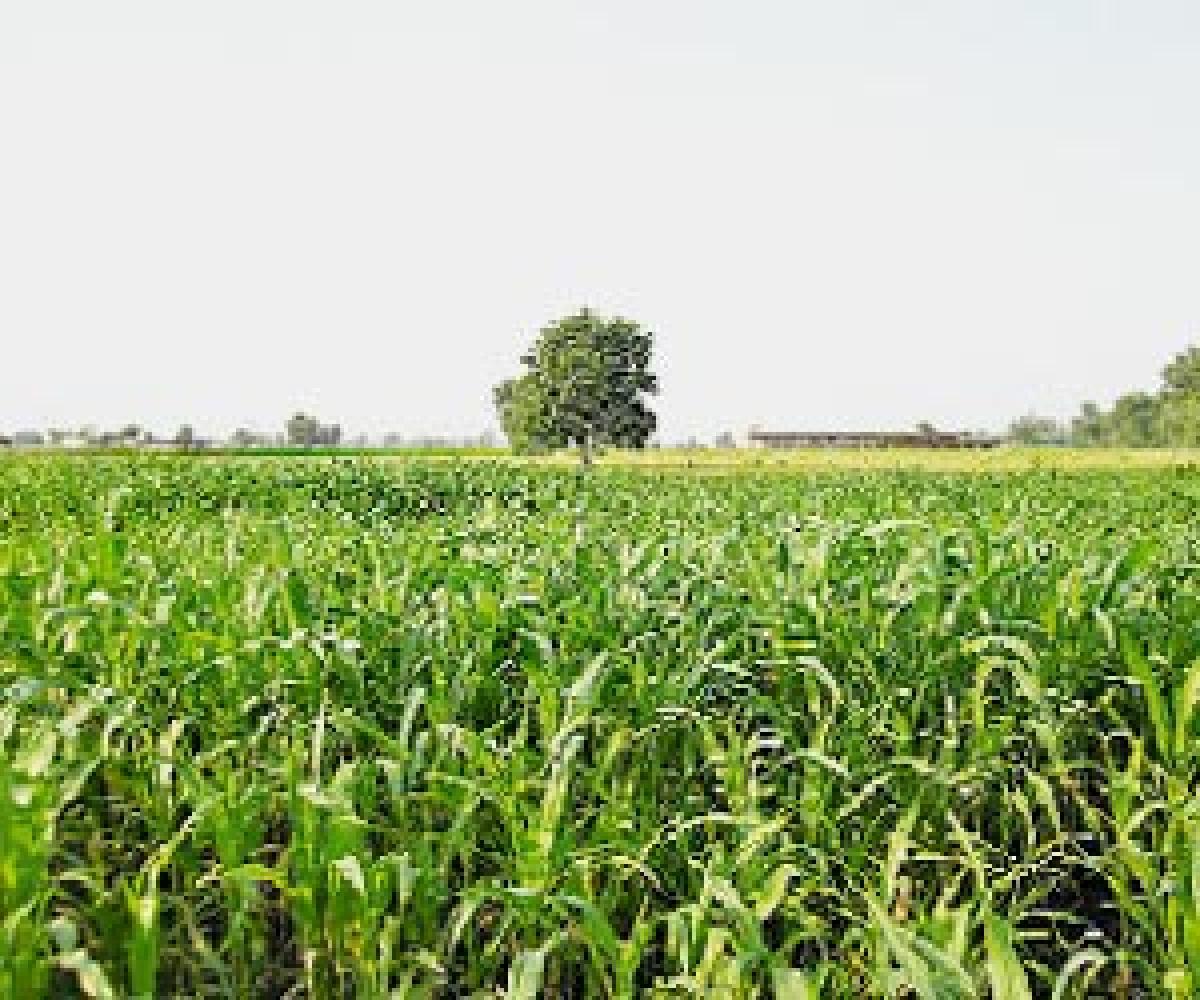Live
- AI Model Detects Residual Brain Tumors in 10 Seconds, Offers Real-Time Surgical Guidance
- Reliance and Disney Complete JV Deal to Strengthen Entertainment Presence in India
- UP Govt Agrees to Protesters’ Demand, PCS Exam to Be Held in One Day
- Trump’s Social Security Tax Promise Faces Hurdles: What Retirees Need to Know
- Strict Action Needed Against Attacks on Government Employees - Retired Employees
- Hyundai Motor India Limited Announces 2024 Edition of ‘Hyundai Always Around’ Campaign
- Minister for Environment, Forests, and Endowments Celebrates Karthika Pournami and Guru Nanak Jayanti
- World Quality Day: Hindustan Zinc Reaffirms Commitment to Superior Product Quality & Innovation
- Grand Kartika Purnima Celebrations at Nagar Kurnool’s Saraswati Shishu Mandir
- Children’s day celebrations, Karnataka remnisences on Nehru’s contributions
Just In

The department of Animal Husbandry is soon launching a fodder production scheme under which farmers having large land holdings of
- State government to launch fodder production scheme soon
- Department of Animal Husbandry to pay lease amount of Rs 10,000 per acre to farmers for raising fodder
- Fodder raised by farmers should be sold to farmers at a subsidised price
Anantapur: The department of Animal Husbandry is soon launching a fodder production scheme under which farmers having large land holdings of minimum 10 acres or so for raising the fodder in their lands and get a lease amount of Rs 10,000 per acre apart from commission payments of Rs 10,000 per cutting and Rs 30,000 for 3 cuttings a year totalling the same amount to Rs 40,000 income per year. The fodder raised in the farmers land should be sold to farmers at a subsidised price. The department would pay a lease amount of Rs 10,000 per acre to the farmers, who raise fodder for farmers on behalf of the government, according to department sources. The scheme is expected to be a boon to cattle farmers and fodder growers.
Non-availability of water and fodder scarcity are two demotivating factors for farmers for not taking up cattle rearing. Actually, cow and buffalo rearing are being recommended by one and all in the rural areas for supplementing the volatile income on agriculture as agriculture cultivation is subject to the vagaries of nature. The National Bank for Agriculture and Rural Development (NABARD) and the State government at one time encouraged domestic rearing of cattle, sheep, goats and buffaloes as it is proved that raising of even a couple of buffaloes or cows could steer farmers in distress out of their economic problems. Many farmers had given up cattle rearing due to non-availability of fodder and their inability to raise fodder in their own lands due to water scarcity.
Many small and marginal farmers deem fodder growing as a luxury in view of the small extent of two to three acres of lands they possess. The new State government scheme when implemented would provide the much needed encouragement to farmers. Agriculture, horticulture and livestock rearing should be the three-pronged approach for any farmer in Rayalaseema and Anantapur in particular to survive drought conditions, feels the agriculture and integrated cattle farmers. Integrated approach is being recommended for achieving sustainability in agriculture operations.
Assistant Director (Dairy) Narayana Naik told The Hans India that dairy sector is in crisis due to dependence on outside supply of fodder. Many had sold their livestock unable to feed their animals.
In the past, every village used to have grazing fields alienated for the exclusive purpose by the pachayat but over a period of time they had been occupied by vested interests and today it is difficult to find government grazing fields and even if they existed the government allotted the lands for other purposes and developmental projects. Kamalamma, a woman farmer of Kotanki village talking to The Hans India said that erratic monsoon over the years had compelled her family to dispose off their livestock to coup up with drought conditions and tide over famine. The water scarcity had driven them to quit cattle rearing in view of erratic supply of fodder by the government. If the government can assure fodder supply through its new scheme, then our family will think of reviving our age old tradition of raising cattle, she adds.
Vijay, an educated farmer of Garladinne, stated that the State government implement the above mentioned scheme immediately and encourage farmers, who have abundant water sources to raise fodder in their lands on a commercial scale and sell the same to cattle farmers so that fodder scarcity does not arise. The State government should provide incentives and subsidies to such entrepreneurs. It should even lease out land for such enterprising farmers to raise fodder production centres as it would cater to cattle and sheep and goat rearing farmers.
Ravi Prasad Benjamin

© 2024 Hyderabad Media House Limited/The Hans India. All rights reserved. Powered by hocalwire.com







